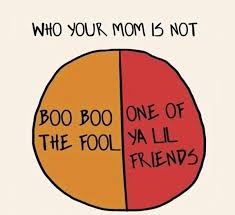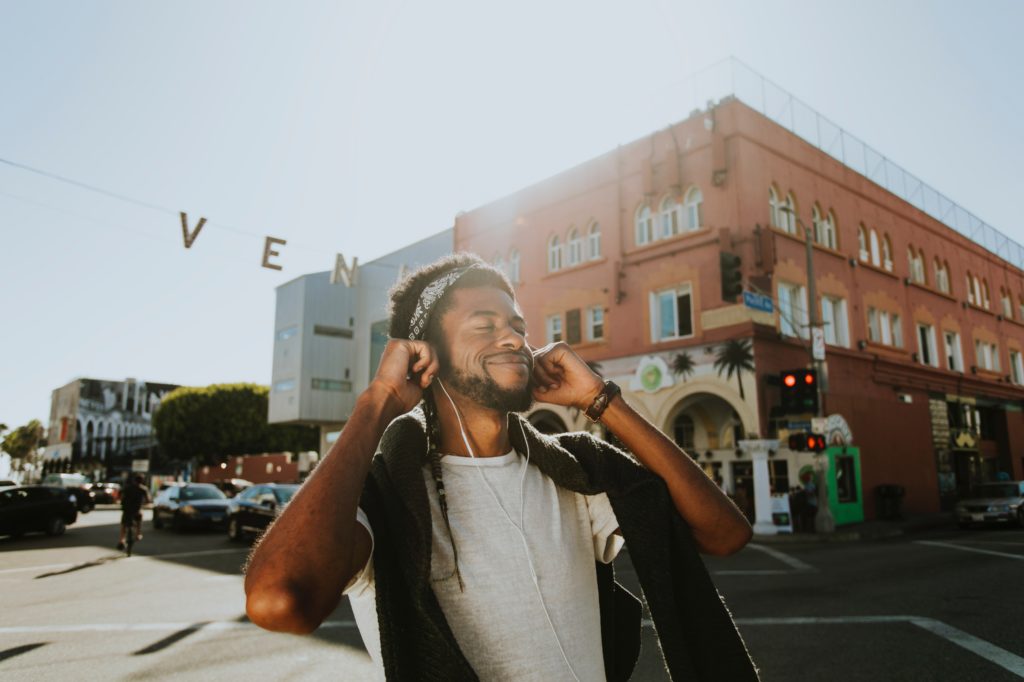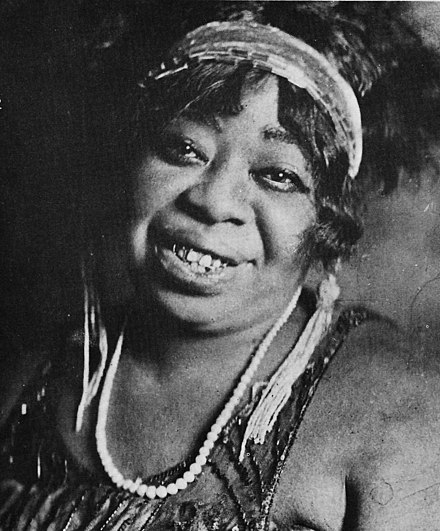Blues is an old genre of music and often, with our current ears and sensibilities, some songs’ content sounds creepy, in poor taste, or even simply dark. It happens so often that I have a playlist of songs that I only share with others in very specific contexts. To be honest, I’ve felt mildly ashamed of loving these songs due to the knowledge that people often feel uncomfortable. It’s something I’ve been thinking about for years. I recently heard a quote about the fact that many artists singing about their abusive partner, or how evil they were, were actually talking about their owners, bosses and white people in their life. It caused me to wonder what other context we are missing in this music. What else are we prejudging?

So, when the song “good morning little school girl” came on, I immediately fell in love, only to feel betrayed two lines in. Oh God, I thought. Is he talking about trying to seduce a young child?! Why? Why ruin this song? [take a listen] I was heartbroken by this song. It has just a good sound and I felt weird for liking it, and wanting to play it. It was felt strange to realize I could never play it, and it would simply have to go into my “sensitive blues” playlist.
Curious if I misheard, I looked up the lyrics. There it was,
“Hello, little school girl
Good morning, little school girl
Can I go home with you?
Can I go home, later wit’ you?”
Weird.
With more research I found this song had been covered for many, many years. It has topped charts many times over. Many of the artists we know and love have also covered this song, so what’s with it?
Then it hit me. I’m looking at this song through the wrong lens of English and of time. The context of the singers culture matters, particularly since the Black and White English speakers don’t use the same words to mean the same things at times.
Today when we think of “school girl,” we often think of a younger age, say before 10. Why is that? We have word for ages after 10, pre-teen and teenager. Or, we (in America) use “middle schooler,” or “high schooler.” These are ways to suggest age. But before those words were used, anyone is school was a “school boy” or “school girl.”
I can hear you saying, “Ok Grey, but what about the “little”? Doesn’t that denote age?” Yes and no. In white American English, the word “little” is used only for a certain age group, normally under 10. That is often dropped in middle school (10+) because it’s considered demeaning. Here’s the thing: “Little” in Black English isn’t used like that. “Little” just means younger than me. It comes back to the hierarchy [we wrote about it] in that Black people are very aware of age. Additionally, you aren’t considered an adult until you are past 25 (at least today).
A phrase many Black people have heard is “I’m not one of your little friends” and or having a partner referred to as a “little friend” by a parent when they are under 25, for sure and maybe by people much older even after that point age.

Why? The term “little” has nothing much less to do with the person’s age, but more their age in relation to the speaker. Both a 40 year old and a 23 year old and would refer to a 21 year old as “little.”
Then also consider the age of consent at the time. In this era, you were a consenting adult at the age of around 16. The typical graduating age from “high school” was around this age too as well. I believe historically that Black women married younger than many Black men due to the inability to attend college as well as social expectations.
So, we have established the “little school girl” might not be a very young child, but a young woman on the cusp of being able to marry, and graduate high school, and that she’s younger than the original singer. Ok, that’s not so bad, right?
Then there is this line….
“Now, you can tell yo’ mother an’ yo’ father, mm
That Sonny Boy’s a little school boy, too”
Ehhhhh, weird again. Why tell her to lie? Clearly he is doing something wrong? This brings that feeling up again that maybe he’s WAY too old for her. Sonny Boy at the time of the recording was in his early 20s, which is not really old enough for that comment to make sense given what we know. Alas, we again have missed a contextual detail or two.
He’s a blues man. Blues was considered the devil’s music, and the men that performed it weren’t to be trusted. They were considered to be flaky, shifty, and possibly evil. They had a reputation for being very sexual, which is sinful. On the other hand, him being a little school boy is much better. It’s more honorable, implies they are of a similar age, and doesn’t cause her to lose face or have issues.
With all this in mind, it changes the feel of the song a great deal. It’s no longer a story of a creepy man hitting on a primary school student, but instead a young man hitting on a young lady. It now aligns with the cultural way of flirting. Men are more forward when they make the assumption that women have the power to say no ‘[read more about that here]
Listen to this song again. Tell me what you think!
If you like this content, be sure to support us on Patreon! You get early access and exclusive content by becoming a member. HERE!
Or consider buying the author a cup of coffee. It’s readers like you that keep the site going and free.HERE!



From mississippi version –
I ‘member way back, babe
I ‘member way back, babe
When I was young age
When I was young, age-a nine
Lord, I thinkin’ about my schoolday
It sho’ did worry on my mind
Clearly states he is older and implies she is 9.
Grateful Dead Version says –
I’m gonna buy me an airplane and fly all over your town
Tell everybody baby, lord knows you’re fine
Come on pretty baby now, I just can’t help myself
You’re so young and pretty I don’t need nobody else.
Good morning little schoolgirl, can I come home with you?
Don’t you hear me crying?
Good morning little schoolgirl, can I come home with you?
Good morning little schoolgirl, can I come home with you?
Tell your mama and your papa I’m a little schoolboy too.
I’m a schoolboy, too. Hey, I’m a schoolboy, too.
I want to be your chauffeur, I want to ride your little machine
I want to be your chauffeur, I want to ride your little machine
I want to put a tiger, baby I want to put a tiger, baby.
I want to put a tiger, baby, hey in your sweet little tank.
A man buys an airplane. And that he is asking her to tell her parents he is a schoolboy implies she is young. Then goes on to graphically describe putting his tiger in her little sweet tank.
You are a pedophile apologist at best with this twisted article trying to deny this propaganda that our children are nothing more than sex objects to the elite and parasites to the rest of us to be aborted.
Sicking and poorly done display to try to manipulate those who do no research.
You do understand that there is a variety of lyrics right? Additionally, don’t you think it would be odd for a song to be covered so much if it were genuinely promoting pedophilia? Seems unlikely.
This blog, is about blues music and Black culture therefore I’d never looked at the grateful dead lyrics.
Lately, It’s made pretty clear in the piece that just a thought, not me telling people what is Truth. Without context of the time we can only speculate.
Alas, you don’t know me so I don’t really care what you think of what I wrote, although I am concerned with your perspective on how the world treats children. Perhaps it would be best for you to spend sometime dismantling the structures that allow the elite to abuse children rather than rant on a blog’s comment section.
( ._.) . . . … . . . orrrrr maybe you just simply didn’t catch the actual meaning-function to it. it’s a song about a big black man tempting nice & fresh tight young women to cross more than one kind of border behind their backs (not a whole lot of BLACK little schoolgirls in the 30’s, so); it’s a dog-whistling troll song to piss off the whities!!!
Nice try. Maybe I’d have considered this argument if it wasn’t clear that Black, called negro at the time, school girls WAS very much a thing. See here- https://www.jstor.org/stable/40034578 and here https://library.hunter.cuny.edu/old/sites/default/files/pdf/archive_articles/african_american_women_and_hunter_college_perkins.pdf for discussions around Black girls in school.
There are a lot of hidden meanings, in blues and this isn’t one of them in my opinion.
there’s versions out there that literally say “i don’t care that you’re only 17”
Well, different versions can be written by different people. But, even if it was by the original author,
“While the unrestricted age of consent is between 16 and 18 in all U.S. states, the laws have widely varied across the country in the past. In 1880, the ages of consent were set at 10 or 12 in most states, with the exception of Delaware where it was 7.[105] The ages of consent were raised across the U.S. during the late 19th century and the early 20th century.[106][107] By 1920, 26 states had an age of consent at 16, 21 states had an age of consent at 18, and one state (Georgia) had an age of consent at 14.[105] Small adjustments to these laws occurred after 1920. The last two states to raise their age of general consent from under 16 to 16 or higher were Georgia, which raised the age of consent from 14 to 16 in 1995,[108] and Hawaii, which changed it from 14 to 16 in 2001.[109]” (this is from Wikipedia but other sources also say this just less concisely)
History is complicated. Context matters. The article is much more about that context than it is about if the behaviour depicted in the song is ok or not.
Bob Dylan took the melody and harmonica riff and rewrote the lyrics:
“Early in the morning
Early in the morning
I’m calling you to
I’m calling you to
Please come home
I could make it without you honey
If I didn’t feel so all alone…”
Later on he directly references the original:
Fifteen jugglers, fifteen jugglers, five believers, five believers, all dressed like men,
Tell your momma not to worry because yes, they’re just my friends.”
Here’s a link to the cut, if you’re interested:
https://www.youtube.com/watch?v=hpbOBExuytQ
Thanks, an interesting take. I am currently writing about Muddy Waters’ “Folk Singer” for my blog. I’m working my way through Rolling Stones magazine’s 500 Greatest Albums of All Time (2012) and just got to #282.
I found your post (and the comments) invaluable, so I will credit you and provided a link to this blog in my published post – likely up tomorrow night.
I think you’ve got it dead on. Generally people see what they want to see, believe what they want to believe, and refuse to think about what requires thought; if all you have is a hammer in your toolbox, pretty soon everything starts to look like a nail. I think the outrage demonstrated by the other commenters here says a lot more about what’s on their minds than it does the songwriter’s.
I wondered about the meaning for some time as well. Your well written article gives a lot of great context. Thanks for that!
Some commenters mention more problematic lyrics by (white) cover versions. I wonder if that isn’t a huge problem as we can’t assume that the covering artists are aware of all that context provided. That could also explain why they add lines that “confirm” the pedophile readings.